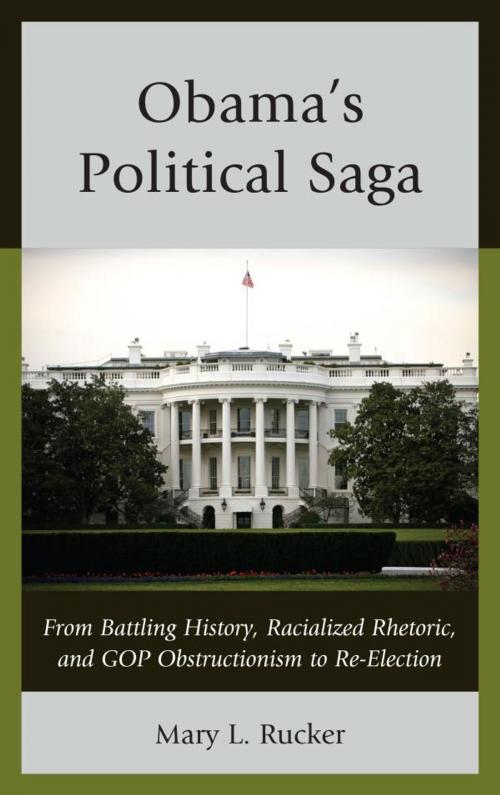Obama's Political Saga
From Battling History, Racialized Rhetoric, and GOP Obstructionism to Re-Election
Nonfiction, Social & Cultural Studies, Political Science, Politics, Leadership, Government, Political Parties| Author: | Mary L. Rucker | ISBN: | 9780739182918 |
| Publisher: | Lexington Books | Publication: | July 11, 2013 |
| Imprint: | Lexington Books | Language: | English |
| Author: | Mary L. Rucker |
| ISBN: | 9780739182918 |
| Publisher: | Lexington Books |
| Publication: | July 11, 2013 |
| Imprint: | Lexington Books |
| Language: | English |
Many conservative extremists have argued that Obama was advancing a socialist agenda, immersing himself in African-American radicalism, and pushing big government liberal policies during his first term. The Republican Party, we once knew, has been pushed to the extreme right and has rendered itself unwilling to compromise with the first African American president in order to credit him with any degree of success. The Party’s chief goal was to take back the White House in the 2012 presidential election by any means necessary to push their radical agenda, as some have boldly stated. With the help of Republican governors in certain swing states, the Republican Party knew it had a chance to win the White House by passing voter suppression ID laws. Consequently, from white church pulpits to the political arena, conservative radicals have divided the American electorate and have played on the irrational apocalyptic fears of many that Obama will destroy the exceptional nature of America. Conservative radicals have shaped our national debate and have driven our discourse with eliminationist and racialized rhetoric against the Obama presidency. Consequently, many anti-Obama narratives have hit the bookstores and have consumed the intellectual life of an overly suspicious, low information general public where many lack the critical and political thought about ways they need to know to emancipate themselves from destructive prevailing ideologies. Obama’s Political Saga serves as a counter-narrative to the paranoid politics of anti-intellectual and anti-science radicals and hopefully provides a reasonable discussion about Obama’s political saga in his first term. These anti-Obama narratives have resurrected themselves from the Jim Crow era, influencing a segment of the conservative base to believe that equal rights for African Americans, other Americans of color, and women would threaten the social order by diminishing white (male) privilege. Therefore, we need counter-narratives to help us engage in genuine political and intellectual debate about the first African American president and his legacy.
Many conservative extremists have argued that Obama was advancing a socialist agenda, immersing himself in African-American radicalism, and pushing big government liberal policies during his first term. The Republican Party, we once knew, has been pushed to the extreme right and has rendered itself unwilling to compromise with the first African American president in order to credit him with any degree of success. The Party’s chief goal was to take back the White House in the 2012 presidential election by any means necessary to push their radical agenda, as some have boldly stated. With the help of Republican governors in certain swing states, the Republican Party knew it had a chance to win the White House by passing voter suppression ID laws. Consequently, from white church pulpits to the political arena, conservative radicals have divided the American electorate and have played on the irrational apocalyptic fears of many that Obama will destroy the exceptional nature of America. Conservative radicals have shaped our national debate and have driven our discourse with eliminationist and racialized rhetoric against the Obama presidency. Consequently, many anti-Obama narratives have hit the bookstores and have consumed the intellectual life of an overly suspicious, low information general public where many lack the critical and political thought about ways they need to know to emancipate themselves from destructive prevailing ideologies. Obama’s Political Saga serves as a counter-narrative to the paranoid politics of anti-intellectual and anti-science radicals and hopefully provides a reasonable discussion about Obama’s political saga in his first term. These anti-Obama narratives have resurrected themselves from the Jim Crow era, influencing a segment of the conservative base to believe that equal rights for African Americans, other Americans of color, and women would threaten the social order by diminishing white (male) privilege. Therefore, we need counter-narratives to help us engage in genuine political and intellectual debate about the first African American president and his legacy.















